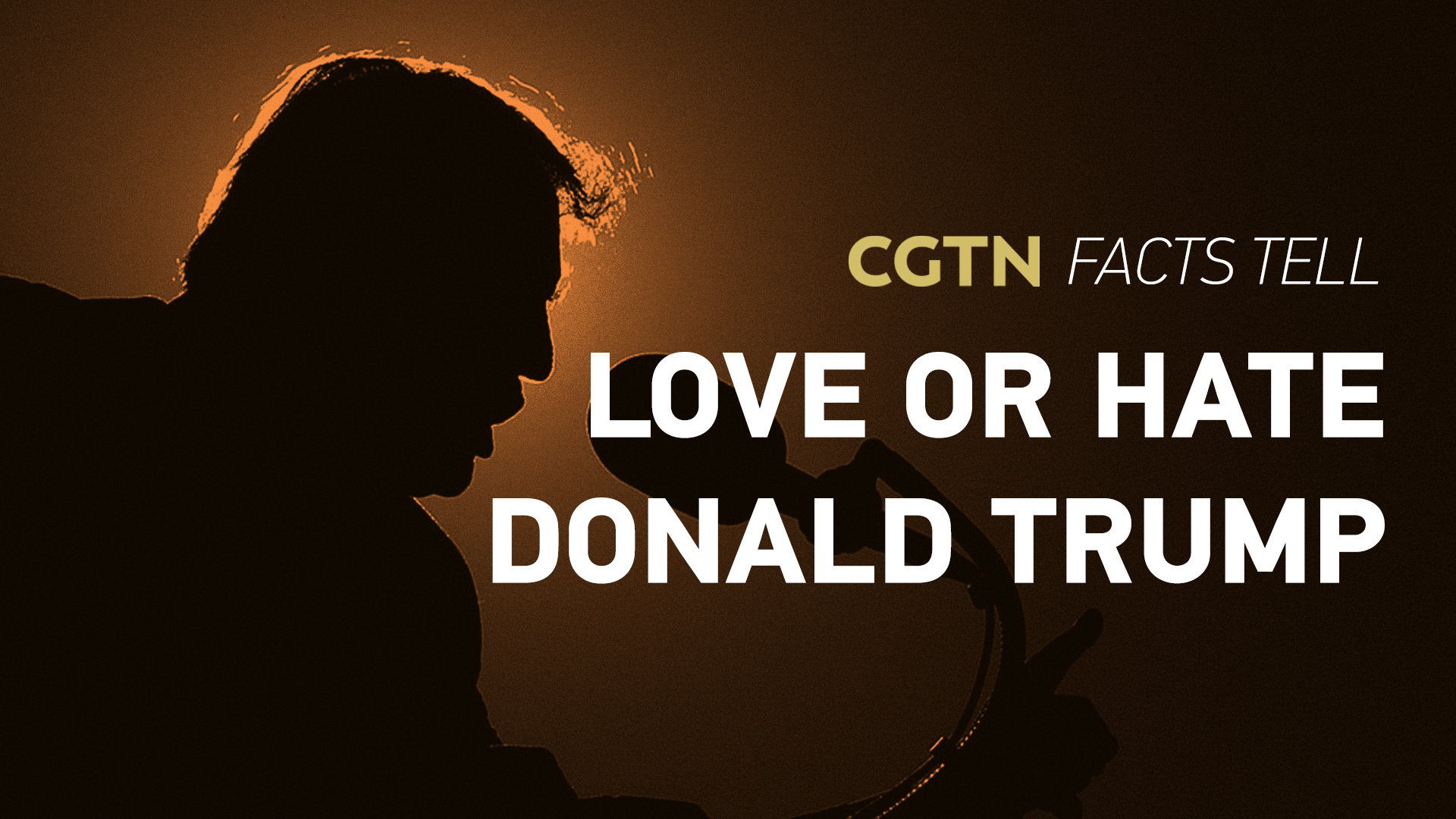04:50

On January 20, Donald Trump's presidency will officially end. Four years in the White House, Trump has been thrust into the global spotlight in a way the world could never have imagined.
Now, as the fateful day draws near, some are relieved to see Trump go. But does it really mean America can finally leave the past four years behind? Or will the dark clouds still linger?
Economy and trade
The country's economic boom is Trump's proudest legacy. With the economic stimulus from his tax and regulatory reforms, the U.S. unemployment rate was at its lowest in 50 years, wages for lowest-paid workers were rising nearly 5 percent a year, and the stock market was buoyant.
But in 2020, the pandemic hit markets hard. The unemployment rate reached a record high of 14.7 percent in April at the peak of the economic shutdown.
Meanwhile, as he promised to put Americans first, shortly after taking office in November 2016, Trump decided to withdraw the United States from a multilateral trade agreement, the Trans-Pacific Partnership (TPP).
He also called the North American Free Trade Agreement (NAFTA) the “worst trade deal ever made” and renegotiated it as the U.S.-Mexico-Canada Agreement (USMCA). Apart from other Trump's trade conflicts with the world, his confrontational trade negotiations with China have caused repeated friction.
As a lifelong businessman, Trump's logic is stark: win at all costs.
But when that logic is applied to international politics, the loss of friends and enduring grudges may very likely make Washington less respectable than it once was.
“To make America respected around the world again” has then become the primary vision of President-elect Biden as in his victory speech.
Coronavirus
The coronavirus has put the U.S. in a state of turmoil that should not have been so terrible.
The Trump administration has spent an inordinate amount of time looking at the events the other side of the world and has thus missed prime time to defend the United States from the virus. By the time the government took action, the virus had already spread through American communities, and the tensions between the federal and state governments were not alleviated in time.
A slow promotion of masks and social distancing, a lax strategy to lock down cities; the failure of these critical steps to contain the spread of the virus has left the U.S. facing more than 23 million infections and nearly 400,000 deaths.
And this will be the first, perhaps the biggest, assignment for the next president.
“Our work begins with getting COVID under control. We cannot repair the economy, restore our vitality, or relish life's most precious moments… until we get this virus under control,” as President-elect Joe Biden said in his victory speech.
Judiciary
During his four years in office, Trump has appointed more than 200 federal judges, including 54 federal appellate judges who have the final say on most legal appeals in the country. This number is almost as many as Obama appointed in his eight-year serving.
Three justices, Neil Gorsuch, Brett Kavanaugh and Amy Coney Barrett, appointed by President Trump to the U.S. Supreme Court for life are all 55 or younger. They will keep the U.S. Supreme Court in a conservative majority for a long time.
All these conservative judges will reshape American law over the course of their terms and beyond, and the impact of that change could determine the future direction of the nation's values.
How will this affect a woman's right to an abortion? How will this affect the Affordable Care Act? All of these issues will come to the fore again in the future and conservatives will have a chance to put more weight on the table.
Polarization
In the past four years, one word has cropped up way more frequently than ever before: extreme.
The U.S. may have been divided before Trump took office, and it could even be said that Trump's victory was a result of that division; yet, his four years in the White House have brought America to an unprecedented level of ripping.
First, the political identity has never been such a sensitive topic full of mania and hatred. A study conducted at Pew Research Center in late-2020 shows that both Trump and Biden supporters say if the other wins, it would result in lasting harm to the country.
And the partisan rupture has now made Trump the first president in American history to be impeached twice.
Second, identities in terms of gender, race, education, income and other were all thrown into the gladiator arena, where different views were at each other's throat.
Trump's election was followed by protests from gender equality advocates. The #MeToo movement, equal pay for women's soccer, and the hearing of U.S. Supreme Court Justice Kavanaugh has inflamed the debate even further.
Black Lives Matter groups also staged protests around the country after the police killed multiple African Americans. Half a million American people in nearly 550 places in the United States demanded justice and racial equality.
The flames are everywhere. In the past four years, there have gradually been little accepted premises and the art of compromise in public discourse.
Trump's recently banned Twitter account, once full of exclamation marks, has no doubt done its part.
A more distressed fact might be that a torn America may not be healed any time soon, though the Biden administration has promised a united America.
After all, even after Biden has won with the most votes ever cast for a presidential election in American history, Trump supporters still tried to overturn the result by attacking the U.S. Capitol.
How will the world remember Trump? And even more important, to what extent can Biden unite America and lead it to a smooth path?
The world is expecting. Good luck.

